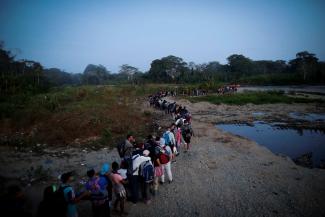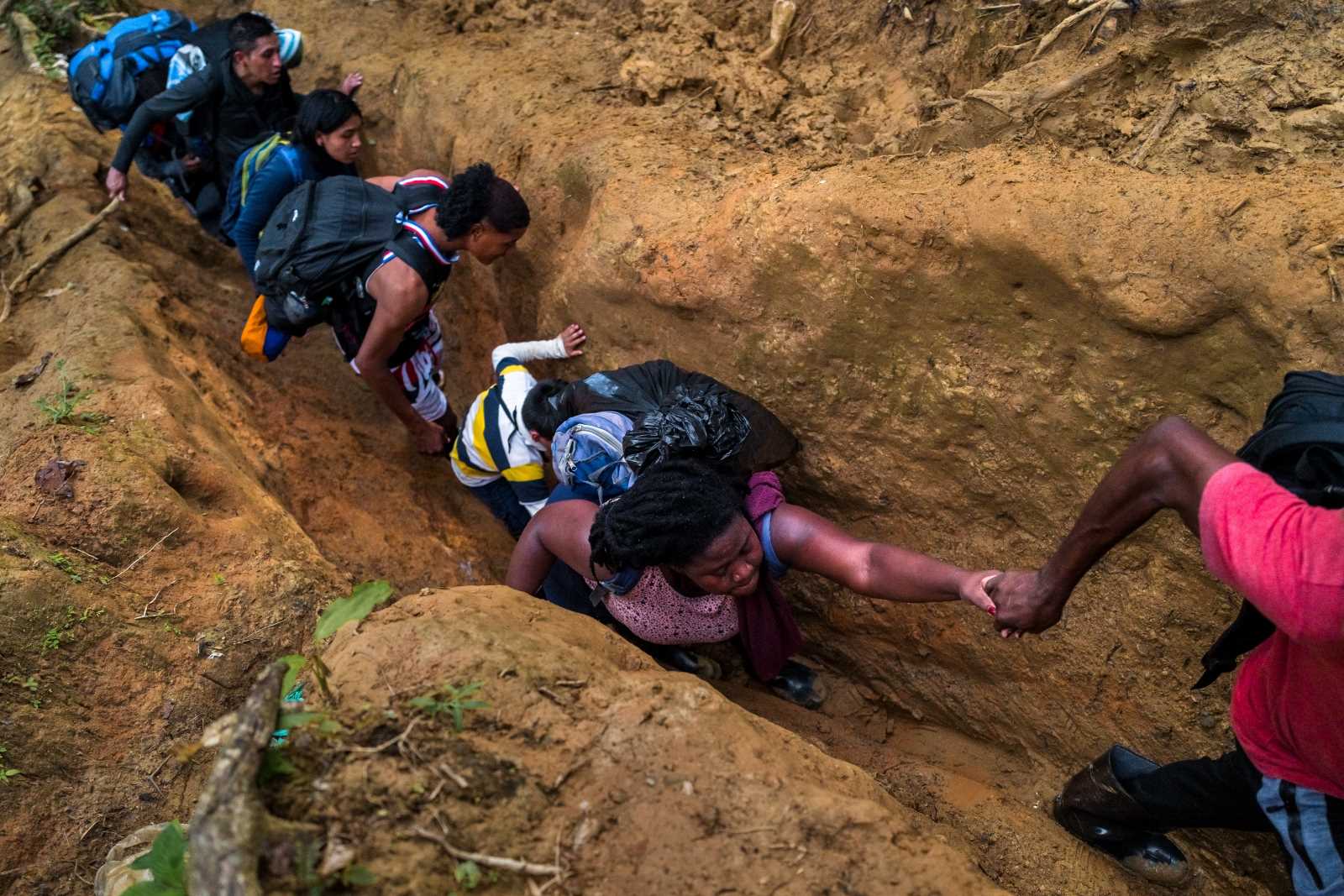Migration in Latin America
Venezuelans continue to leave their country on dangerous treks

With different Latin American countries showing varying degrees of hostility towards Venezuelan refugees, the already existing popularity of North America as a migration destination is increasing. The government of Panama recorded 250,000 migrants and refugees crossing the so-called Darién Gap between Colombia and Panama in 2022. Crossing this jungle area is considered particularly dangerous, however, the route has always been used not only by migrants and refugees, but also by drug traffickers and smugglers.
Most of those crossing the jungle in the Colombian and Panamanian border region are Venezuelans on their way to the US or Canada, although people from other countries are also taking the dangerous route. According to the UN Refugee Agency (UNHCR), there are currently more than 7.13 million refugees and migrants from Venezuela worldwide – a quarter of its population.
Countries on the receiving end of people leaving Venezuela have been lukewarm at best in their obligation to protect refugees seeking shelter. Even in Colombia, where a leftist government is now in power, the new government has toned down its support for Venezuelans and has hardly any reporting system to track the number of refugees and migrants.
At the same time, however, the case of Colombia illustrates how internal tensions and global challenges collide with a country’s capacity and resources to protect people. Colombia, like the rest of Latin America, has been hit hard by the Covid-19 pandemic, although some economic indicators seem to be recovering. This, combined with dwindling support from the international community, leads to limited protection of already vulnerable migrants and refugees.
The Colombian Bureau of Migration estimates that there are currently almost three million Venezuelans in Colombia. This means that Venezuelans make up almost six percent of Colombia’s population. Their presence has led to xenophobic rhetoric from populist politicians calling for the deportation of Venezuelans, as well as to the impression that Venezuelans are directly responsible for the deterioration of the security situation in Colombia, although research has shown that their presence cannot be conclusively linked to this. Nevertheless, there are Venezuelan criminal groups that have expanded their activities to other countries such as Colombia through migrant networks, and migrants and refugees have been involved in criminal activities that were already taking place in Colombia.
Minors crossing the jungle
The resulting stigmatisation and general resentment further limit the opportunities of the law-abiding majority of Venezuelan migrants. Having left their country of origin, where infant mortality is high and living conditions are low, the rejection of their neighbouring countries forces them to continue looking for greener pastures – mostly beyond the Darién Gap.
And it is not only young men who venture on these dangerous treks. All over Latin America, pregnant women or families with infants are crossing the jungle or mountains like the Andes. Twenty percent of the people who get across the Darién Gap are minors. The risks that parents and families take underline their tragic situation.
A whole industry has emerged, mostly run by illegal organisations, offering services such as transport, food, bribing officials and access to information about routes. This is another reason why more and more people are trying to travel through dangerous terrain in Latin America in search of protection or a better life elsewhere – preferably in North America.
And they will most likely continue to do so as inflation has risen in the region and economic growth has stalled in many places. Those Venezuelans who have already managed to emigrate to another Latin American country find themselves forced to return to Venezuela as they are no longer able to cover their own growing expenses while supporting their families at home. The only other option seems to be to continue their journey and look for places with higher wages and better living conditions. Most of them believe such places can be found in Canada or the USA.
From a macroeconomic perspective, the US pressure through the Federal Reserve System does not help the situation. By raising interest rates, there are several domino effects. First, this increases the debt service of developing countries (which reduces the funds available for social programmes). Second, it crowds out international investment (which leads to higher exchange rates). And third, it increases the cost of importing goods (which directly affects countries that rely on imports of basic products such as fuel or grain). This makes life unsustainable in the face of weak social-protection systems.
The only way to stop people from embarking on deadly routes is to improve their living conditions at home. This requires enabling and promoting equitable economic growth in the countries of the region. As things stand now in Venezuela, the yoke of the authoritarian regime and international sanctions will continue and the outlook for the international economy remains bleak. The US Federal Reserve’s actions continue to fuel the dynamics that will lead to an even greater exodus of people and the decline of more economies in the region.
Fabio Andrés Díaz Pabón is a researcher at the African Centre of Excellence for Inequality Research (ACEIR) of the University of Cape Town and a research associate at Rhodes University in South Africa.
diazpabon@iss.nl









